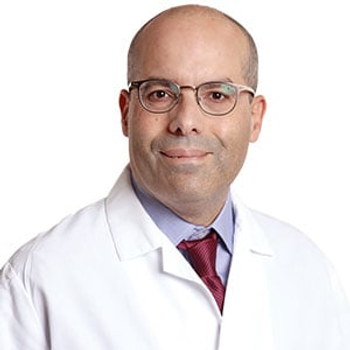
Oncology NEWS International
- Oncology NEWS International Vol 6 No 9
- Volume 6
- Issue 9
Talking to Cancer Patients: How, When, Where, How Much?
NEW YORK-Along the long road that starts with a cancer diagnosis, good communication will ease the way for patients, families, and physicians alike.
NEW YORKAlong the long road that starts with a cancer diagnosis, good communication will ease the way for patients, families, and physicians alike.
There are many barriers to com-munication, but there are many benefits if we can communicate, Ronald Blum, MD, said during a teleconference on end-of-life issues sponsored by Cancer Care, Inc., an organization that offers guidance, information, and referrals to cancer patients and their families.
Communication reduces stress, resolves problems and strengthens peoples ability to cope. It also can bring patients and family together, said Dr. Blum, medical director, St. Vincents Comprehensive Cancer Center, New York.
Many issues need to be discussed when a patient is first diagnosed with cancer. Medical plans need to be communicated and family concerns addressed, he said. The way I try to convey the need to communicate is by saying, Im going to share my thinking with you. I would hope you would share your thoughts with me, and, together, we can make a decision about your treatment.
Finding the right time and place to talk is important, and Dr. Blum often gives patients the opportunity of some lead time. I say, look, I have some news to give you that may not be so good. Whats going to be a good time? Whats going to be a good setting for you and your family? I try to arrange the setting in such a way that it is most supportive.
That means finding the right place, one that is quiet and conducive to communication, even when patients or family members may want to talk right away. Ive had patients and their families stop me in a jammed elevator and ask the big question, Am I going to live or die? How am I going to die? Where am I going to die? But the elevator is not the right place to talk, Dr. Blum said.
Physicians must also take into account the patients psychological needs and communication style. Some patients are so anxious that they really cant talk about it, or theyre so depressed and immobilized that they cant be proactive; their denial is too overwhelming, he said. Other patients are so in awe of their doctors that they dont want to annoy them with questions, and that has to be overcome. So we need to try to adapt to various patient styles.
Compassion Fatigue
The capacity to deal with the stresses of working with the sick and dying ultimately can affect the health care professionals capacity to listen to patients and communicate with them.
We often suffer from what is called compassion fatigue, which is due to the recurrent cycle of grief and loss in the work that we do, said Carolyn Messner, ACSW, an oncology social worker and director of Education and Training at Cancer Care, Inc.
It is very important that we come together for meetings like this to recharge our batteries, she added, referring to the teleconference on communication about end-of-life issues sponsored by Cancer Care, Inc.
At Cancer Care, quarterly memorial services are held to remember the patients who have passed away, Ms. Messner said. We need to recognize the death of each patient, and to draw upon the great wealth of practice wisdom of our colleagues to help sustain us.
Dr. Blum often lets patients set the ground rules for discussions. Hell tell them: Some people like to put all their cards on the table. Others prefer we dont go into so much detail. The patients response helps the physician gauge how much the patient wants to know and set an agenda for the discussion. I tell them, Our goals for this discussion are the following . . . and that helps keep the discussion limited, Dr. Blum said.
Presenting bad information in terms of hope and reality is also helpful. Something that I would recommend is sayingI really hope you are going to get better, but for the moment we have to deal with the reality that you might not and therefore. . . . Then you can engage in a discussion of end-of-life care and concerns.
Note Taking Encouraged
When he must communicate bad news, Dr. Blum encourages patients to bring others along for support. He also encourages patients and families to take notes and use a tape recorder, to counteract the effects of what he terms selective hearing, and he supplies patients with printed information.
When he has finished his discussion of the patients medical situation, Dr. Blum then tells the patient and family, Now Im ready for your questions and concerns, in an attempt to prompt them to communicate and participate in their treatment.
Articles in this issue
over 28 years ago
IL-2 Shows Promise in Treating Hematologic Cancersover 28 years ago
Studies Show Who Seeks Mammography and Whyover 28 years ago
New Policy Board Enters Tobacco Frayover 28 years ago
Index Quantifies Bone Disease in Prostate Cancerover 28 years ago
Wynder Urges Nutrition as an Adjunctive Cancer Therapyover 28 years ago
Treating Other STDs May Reduce HIV Levels in the Semenover 28 years ago
Bisphosphonates Improve QOL in Bone Lesion Patientsover 28 years ago
Children Run Greatest Cancer Risk from Nuclear Testsover 28 years ago
Trials of IV SNX-111 Paused, but Phase III Pain Trials Continueover 28 years ago
IL-2 Termed ‘Gold Standard’ in Renal Cell CarcinomaNewsletter
Stay up to date on recent advances in the multidisciplinary approach to cancer.




















































